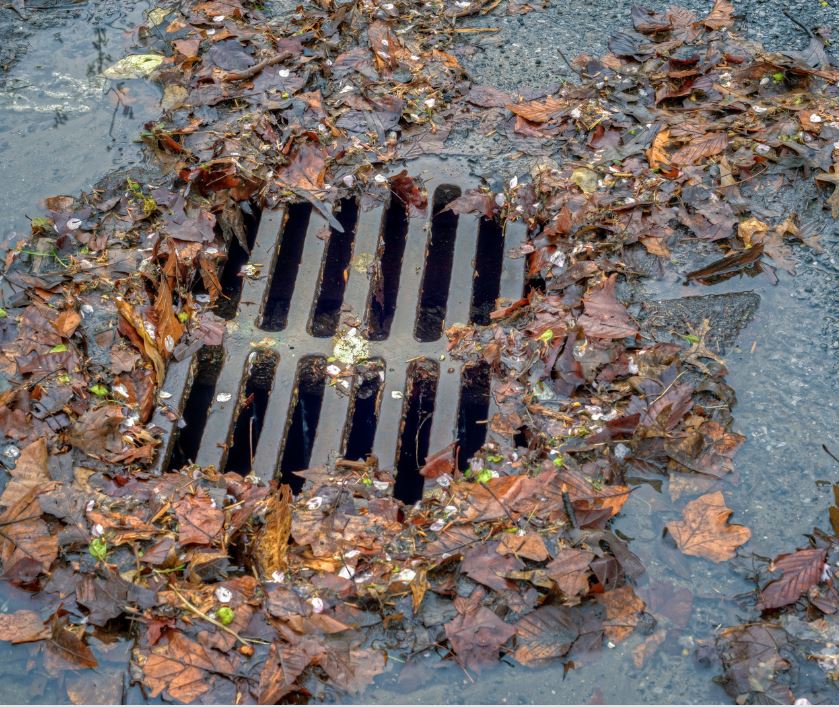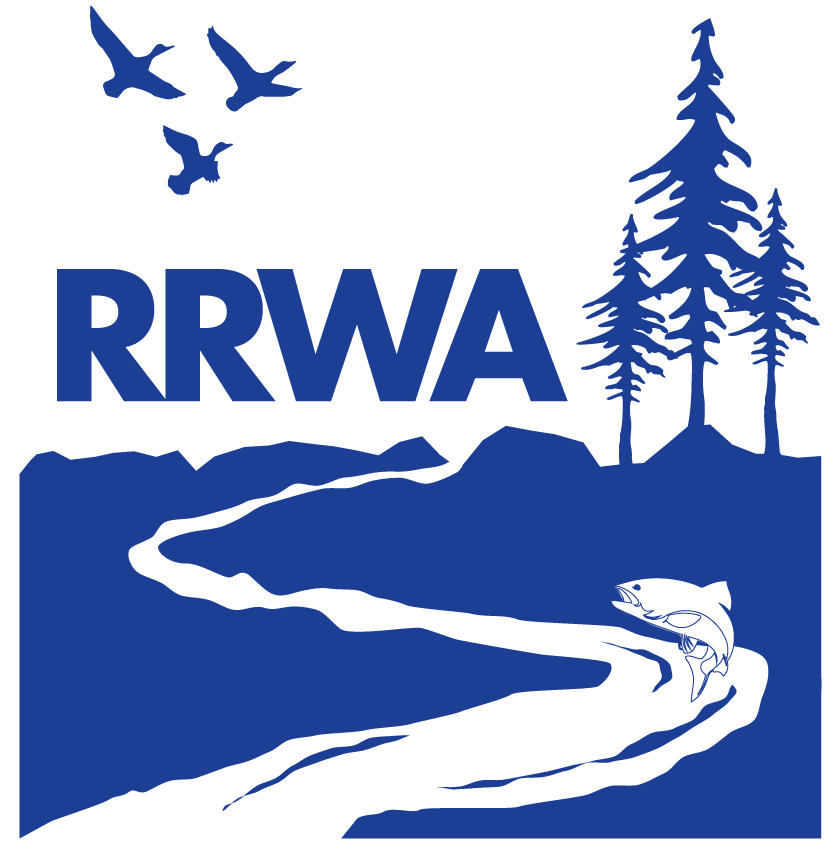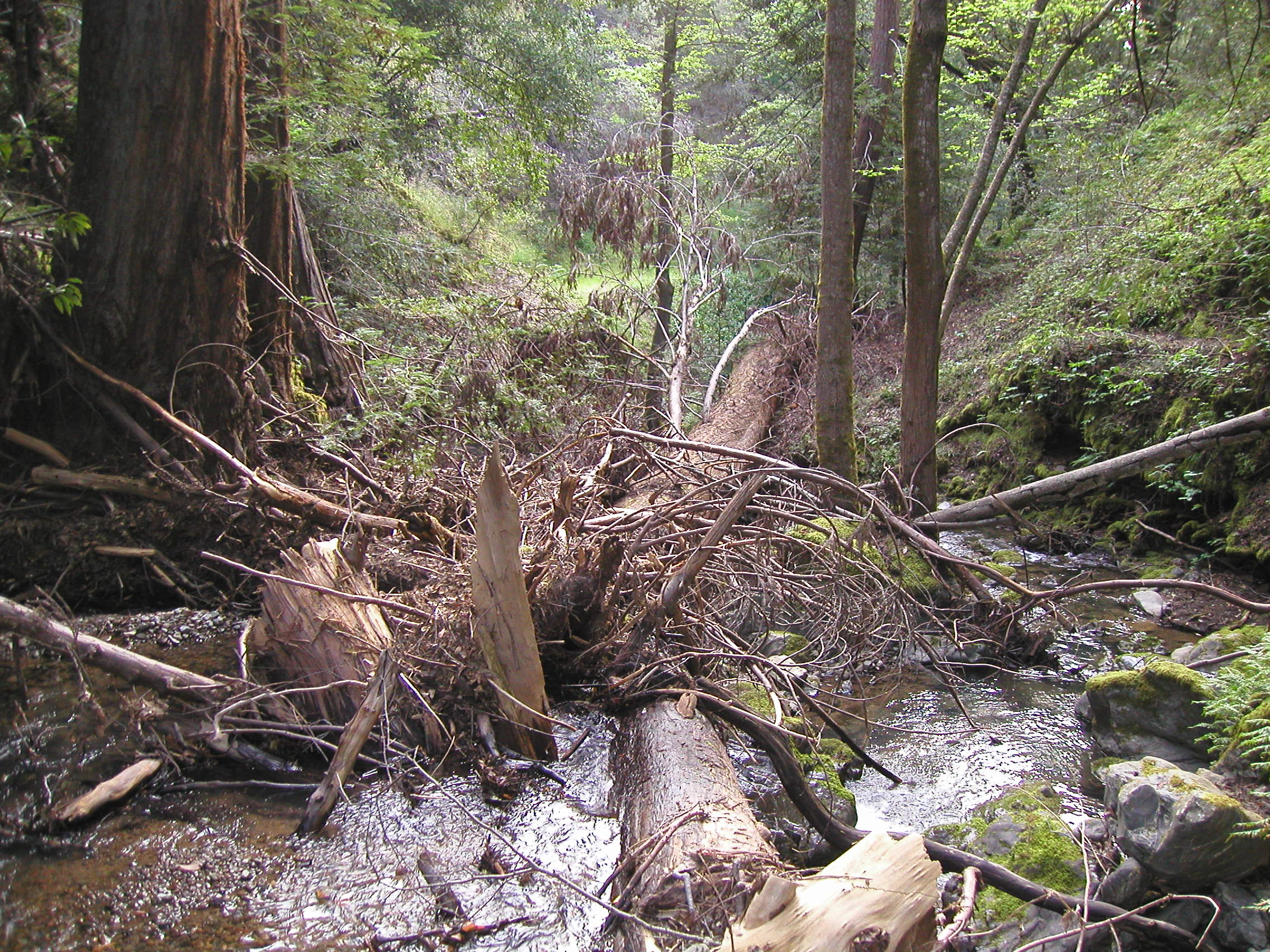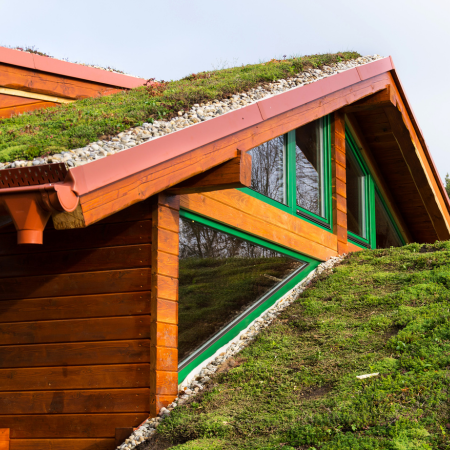Small Actions, Big Impact – Simple Ways to Keep Your Water Clean
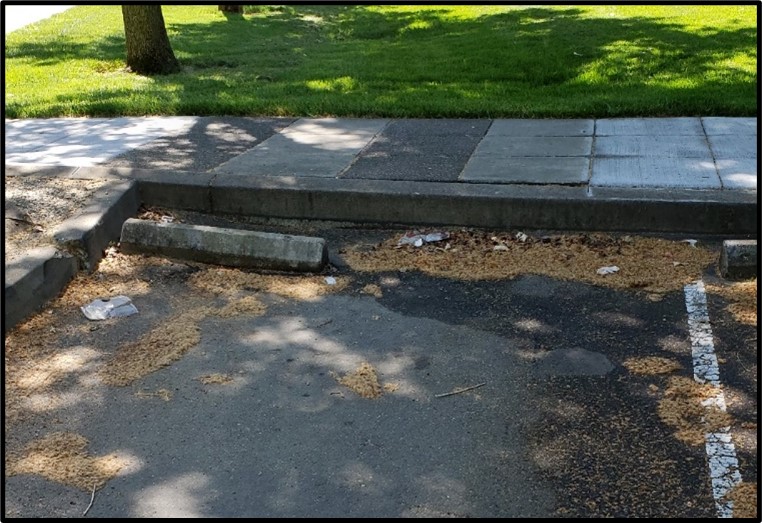
| Picking up trash and sweeping pavement before it rains can help keep our rivers and creeks clean. |
Fall is officially here which means we are moving from the heat of the summer and heading into cooler weather. Putting away shorts and swimsuits in exchange for sweaters and boots. For me and my family, fall signifies a time to make comfort food, like soups and stews, watch football, and maybe even read a book by the fireplace. Maybe you have different traditions. However, as we transition from summer to fall, one thing is true for all of us: fall is the start of our rainy season. This means, in addition to transitioning to cooler weather, we must also prepare for the rain.
During the summer months, several types of pollutants accumulate on our hardscape. Common debris and pollutants include cigarette butts, litter, oil and grease from cars, paint, fertilizers, pesticides, lawn clippings and leaves, pet waste, soapy water, sediment, and construction materials. If not managed properly, these pollutants and solid wastes can accumulate during the summer. Then, during the first large rain event, the rain will mobilize these materials and polluting compounds and send them into our local rivers and creeks. It is known as the “first flush,” a term applied due to the elevated levels of pollutants that enter rivers and creeks after the first big rain event of the year.
As we enter the rainy season, there are some easy things you can do to help minimize pollutants from entering our local rivers and creeks. Get rain ready with the following practices:
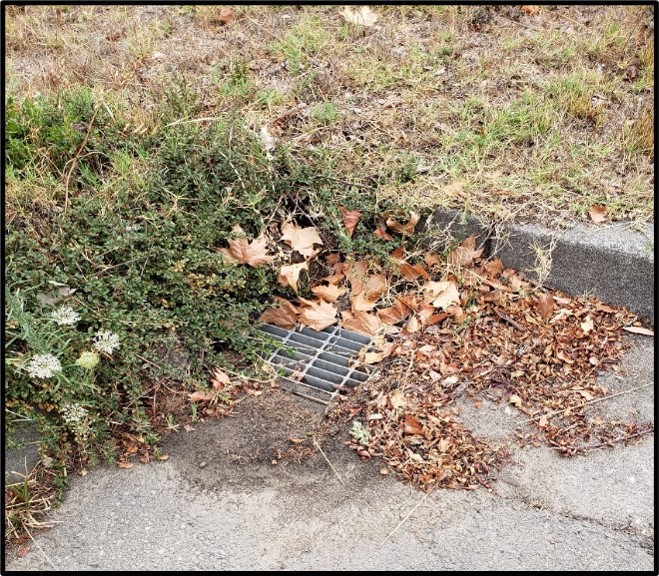
| Sweep and pick up leaves, sediment, and other debris in paved areas. |
- Clear leaves out of roof gutters, downspouts, and paved areas.
- Sweep paved areas.
- Mulch or seed bare soil to avoid erosion during rainstorms.
- Do not use fertilizers or pesticides within 24 hours of forecasted rain.
- Pick up pet waste. Pick up trash.
- Store chemicals, garden products, and gas-powered equipment indoors, or under cover if stored outside.
- Turn down irrigation system run times during fall months and turn off once the rains begin.
- Repair vehicle and equipment leaks. Use absorbent products to absorb any oil that may have leaked onto paved areas.
In addition to helping to keep our natural waterways clean, these practices also can reduce the risk of flooding. Now let’s brush off those coats and umbrellas and get the hot chocolate ready for the cooler days ahead!

